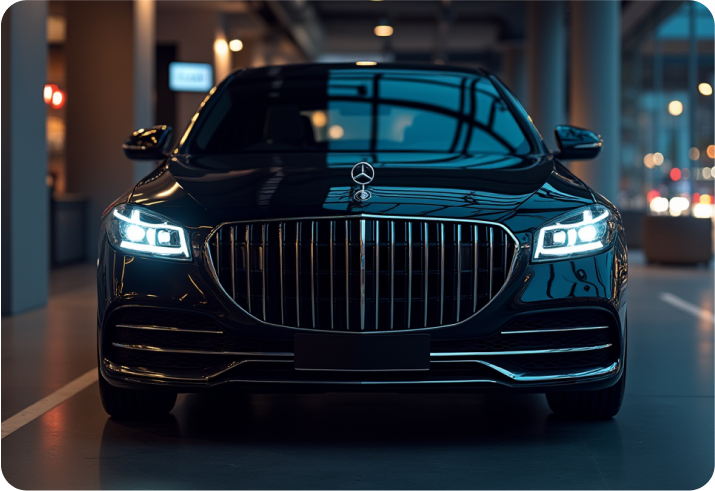Petrol V/S CNG Used Cars: Which One Should You Choose?

Petrol V/S CNG Used Cars: Which One Should You Choose?
Choosing a car can be difficult choice because there are several factors to be considered. One of the essential things would be fuel and mileage. Petrol and diesel are the chief sources of fuel in vehicles. In recent times, the use of CNG is more pocket and environment-friendly. Each variant has its advantages and disadvantages, and the choice is based on the average usage of your vehicle. The million-dollar question is “CNG or petrol car which is better?”.
CNG And Petrol Price Comparison: Difference Between CNG And Petrol
If you are in a fix & want to choose between second-hand CNG cars & used petrol cars, here are a few tips that might help you choose better:
1. Price values
In the increasing order of price,
a. CNG – Rs. 79.56 per kg
b. Diesel – Rs. 89.62 per litre
c. Petrol – Rs. 96.72 per litre
*Prices as of April 14, 2023
CNG being the cheapest of all the three goes easy on your pockets but only in the long run. When it comes to CNG vs petrol cars, CNG wins the race. CNG is expanded as compressed natural gas which remains clear, odourless and non-corrosive.
Diesel has been widely used worldwide, equal to petrol and gives better mileage than CNG. Petrol is the most expensive option, which offers the best driving experience and can be the ideal choice for occasional drivers. This pointer should not be missed if you are looking for CNG vs petrol engine life.
Also Read: Easy Maintenance Tips For Petrol Car
2. Short-term or long-term?
Although diesel and CNG are cheaper diesel cars and CNG cars are more expensive than petrol cars, their efficiency is unveiled in the long run. This indirectly means your investment might be more, and the time taken to overcome that and start to see the benefit of fuel will be more. So, it is always advisable to go for a diesel car if you think you’re going to use your vehicle more frequently, especially for distance trips. For the solution to the question of CNG vs diesel fuel efficiency here is a rough estimate of the correlation between the kilometres travelled and the fuel option that would be ideal:
Also Read: Tips to drive a diesel car economically
a. If you’re travelling for less than 300 – 500 km per month then petrol cars would be the best option.
b. If your car is going to run around 1000 to 1500 km per month then CNG would be an efficient option.
c. Finally, if your car is going to run more than 2000 km or if you’re using your vehicle to travel between two cities regularly in a month then the go-to option would be diesel cars.
For those who are buying vehicles after borrowing loans, it is essential to know once you start paying interest the time taken to clear a loan in the case of diesel and CNG is higher. Also, the amount of interest you pay increases. All vehicles demand luxury and maintenance either in the short term or long term, and it is in the hand of the customer to analyse what his needs are.
3. Maintenance:
In the past, diesel car maintenance was found to be distinctly higher than that of petrol cars. This was a massive hindrance to the customers while making a decision. Later with the blooming technology, this problem was gradually resolved, and now the maintenance charge is more or less the same for both cars. On the other hand, CNG vehicles can be very eco-friendly in the both short and long term, but maintenance issues still prevail in the long run for CNG vehicles.
Also Read: Diesel car maintenance tips
4. Environment-friendly
This is a far-fledged factor for customers to consider, but it is high time we start thinking about the world we live in to give the next generation a better place. Petrol resources have been lately exhausted owing to the increased usage. We need to have an alternative in mind. Increasing pollution caused due to vehicles run by petrol especially has been attributed as a significant cause of global warming and air pollution. CNG gases have turned out to be a game-changer in such crucial times.
Their price has also been a favourable factor. However, many fuel stations do not offer CNG as much as petrol and diesel. Only if the availability increases the usage will also increase. The government should encourage car companies to manufacture and promote more eco-friendly options because sustainability is maximised, and the impact on both nature and mankind is minimal.
5. Mileage
In the race of petrol vs cng, mileage is another key factor to be considered. Unlike petrol, CNG provides customers with a lower cost per mile though too. For semi-sized car passenger automobiles, the typical economy for petrol is 15 km/l and 17 km/l, correspondingly. With CNG, however, the average fuel economy is closer to 25–30 km/l. Compressed natural gas, the gasoline used in CNG vehicles, is measured in kilogrammes rather than litres. Especially opposed to a petrol vehicle, a CNG vehicle has a high gas mileage.
We all wonder “is cng car better than petrol?” or vice versa. Well, both have their advantages and disadvantages. Measuring the CNG vs petrol performance is done above based on certain key elements. Below we have listed individual benefits and drawbacks of cng vs petrol cars for better understanding.
Also Read: How to increase fuel efficiency?
Pros of petrol car
1. Solid performance: A car travelling by CNG has less power than one with a petrol car. Whenever you press the accelerator, there won't be any power delay. Ultimately, operating a petrol vehicle is significantly more pleasurable.
2. Easy access to petrol filling stations: Unlike CNG filling stations, petrol filling stations are situated all throughout the nation. Therefore, you are not required to bother about fueling your vehicle.
3. Reduced expenditure: Petrol vehicles are more expensive than CNG vehicles. As a result, your original investment is reduced somewhat.
Cons of petrol car
1. Higher operational expenses: Rising prices and less gas mileage cause a rise in administrative expenses. CNG is less costly than petrol. Consequently, operating expenses are likewise on the larger side.
2. Carbon footprint: An automobile driven by CNG emits fewer greenhouse gas emissions than those with a petrol engine. Consequently, petrol vehicles add to the rise significantly, which would be detrimental to the natural greenery.
CNG car pros
1. Low operating costs: Compared to a petrol automobile, a CNG vehicle has lower operating costs because of its great fuel effectiveness and reduced fuel cost. The decreased operating cost will be very advantageous in the long term.
2. Sustainable and environment friendly: CNG is currently one of the healthiest gases that you will come across. Carbon emissions from a CNG-powered vehicle were greatly reduced. Therefore, driving a CNG-fuelled vehicle contributes to lowering vehicle emissions.
3. Fuel that is economical: CNG is less expensive than traditional fuels like gasoline and diesel.
CNG car cons
1. Tiny CNG cylinder: Compared to gasoline tanks, CNG fuel tanks are shorter. Due to this, the driving range is reduced. Nevertheless, you may utilise a CNG vehicle for lengthy trips.
2. The trunk area is hampered by the CNG tank because it is often installed within the trunk. Therefore, when it's a hatchback, the entire trunk will be swallowed up. As a result, you may not be able to carry luggage along for the ride.
Make the Second-hand Car choice according to need: CNG Vs Petrol.
It is essential to make a list of things you are looking for in a car before entering a showroom because, without an overview, you’ll only be left confused. Size, capacity, fuel requirements, leg space, seating comfort (hatchback or sedan) etc. are a few things that should come to your mind while choosing a second-hand car. Remember, petrol-used cars can be heavy on your pocket if you plan to use them in the long run. Thus, these factors offer a thorough difference between a CNG and a petrol car.
Thus, whether you choose between Petrol Vs CNG second-hand cars or diesel vs petrol second-hand cars, consider the factors mentioned above.
Also Read: Tips To Keep In Mind While Buying a Used Luxury Car
How to convert a petrol car into a CNG car?
In India, CNG cars are very popular, and many car manufacturers provide factory-fitted CNG kits with their vehicles. However, if you are driving a petrol car that does not have an OEM kit available, you can still convert it to a CNG fuel car by using an aftermarket CNG kit.
It is important to be cautious when selecting a CNG kit and during the installation process. You should purchase the kit from an authorized seller and have it installed by a qualified mechanic. Additionally, you should ensure that high-quality components are used during the installation to ensure safety and optimal performance.
Conclusion
Choosing between a CNG and a petrol car depends on individual requirements. While CNG is more environmentally friendly and cheaper in the long run, petrol provides the best driving experience and is ideal for occasional drivers. Diesel cars, on the other hand, offer better fuel efficiency, making them the perfect choice for long-distance travellers.
The cost of maintenance and availability of CNG refuelling stations is also a factor to consider. It is essential to make a choice that suits your average usage and budget. With the increasing pollution caused by vehicles running on petrol, it is imperative that the government encourages car companies to manufacture more eco-friendly options.
More Blogs To Read:
CNG Cars - All About CNG Cars Explained
Diesel Or Petrol Second-Hand Car: Which One Is Better?
FAQs For Petrol v/s CNG used cars
-
What is the difference between CNG and Petrol?
CNG (Compressed Natural Gas) is a fuel that is used to power vehicles, just like petrol. However, CNG is a gas while petrol is a liquid.
-
Why is CNG Cheaper than petrol?
CNG is cheaper than petrol because it is more abundant and easier to extract from the earth.
-
What CNG is better than Petrol?
Whether CNG is better than petrol depends on what you mean by "better." CNG is better for the environment because it produces fewer harmful emissions, but petrol is better in terms of convenience because it is easier to find and use.
-
CNG vs Petrol Which car is better for mileage?
CNG cars generally have better mileage than petrol cars, but it also depends on the specific make and model of the car.
-
What is the average of CNG cars per km?
The average mileage for CNG cars per kilometre can vary, but they generally have better mileage compared to petrol cars.
-
Is cng better than petrol?
CNG is better than petrol for the environment, but petrol is still more widely used and convenient to find.
-
What are the disadvantages of CNG cars?
Some disadvantages of CNG cars include the need for special equipment to store and transport the gas, the potential for gas leaks, and the limited availability of CNG filling stations.
-
Cng vs petrol! Which car engine life is better?
Whether CNG or petrol has a better engine life depends on how well the car is maintained and how it is used. However, CNG generally produces less wear and tear on the engine compared to petrol.

 By Admin
By Admin









